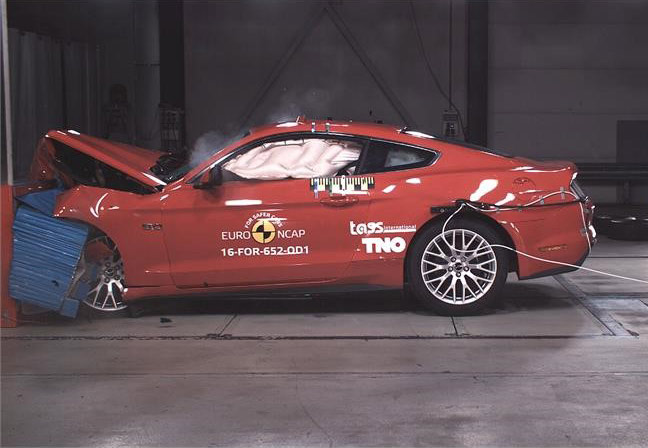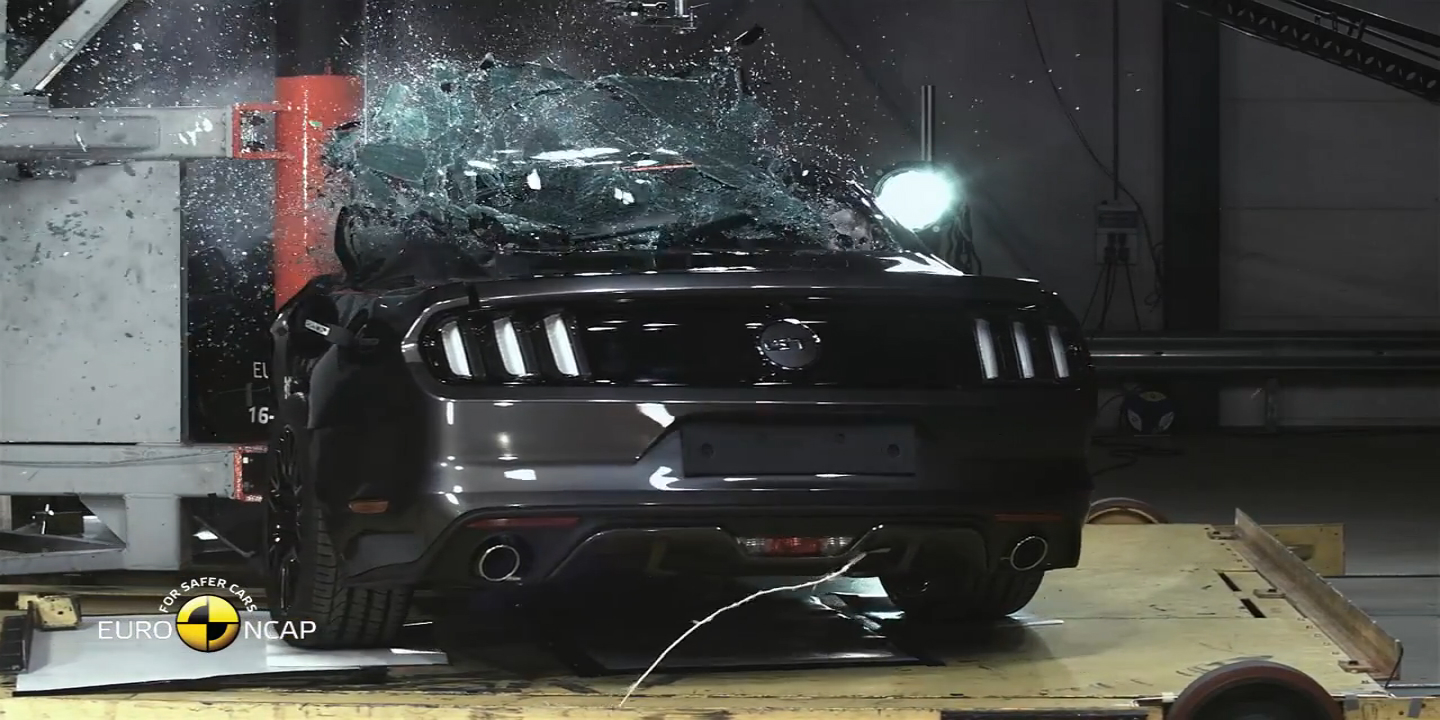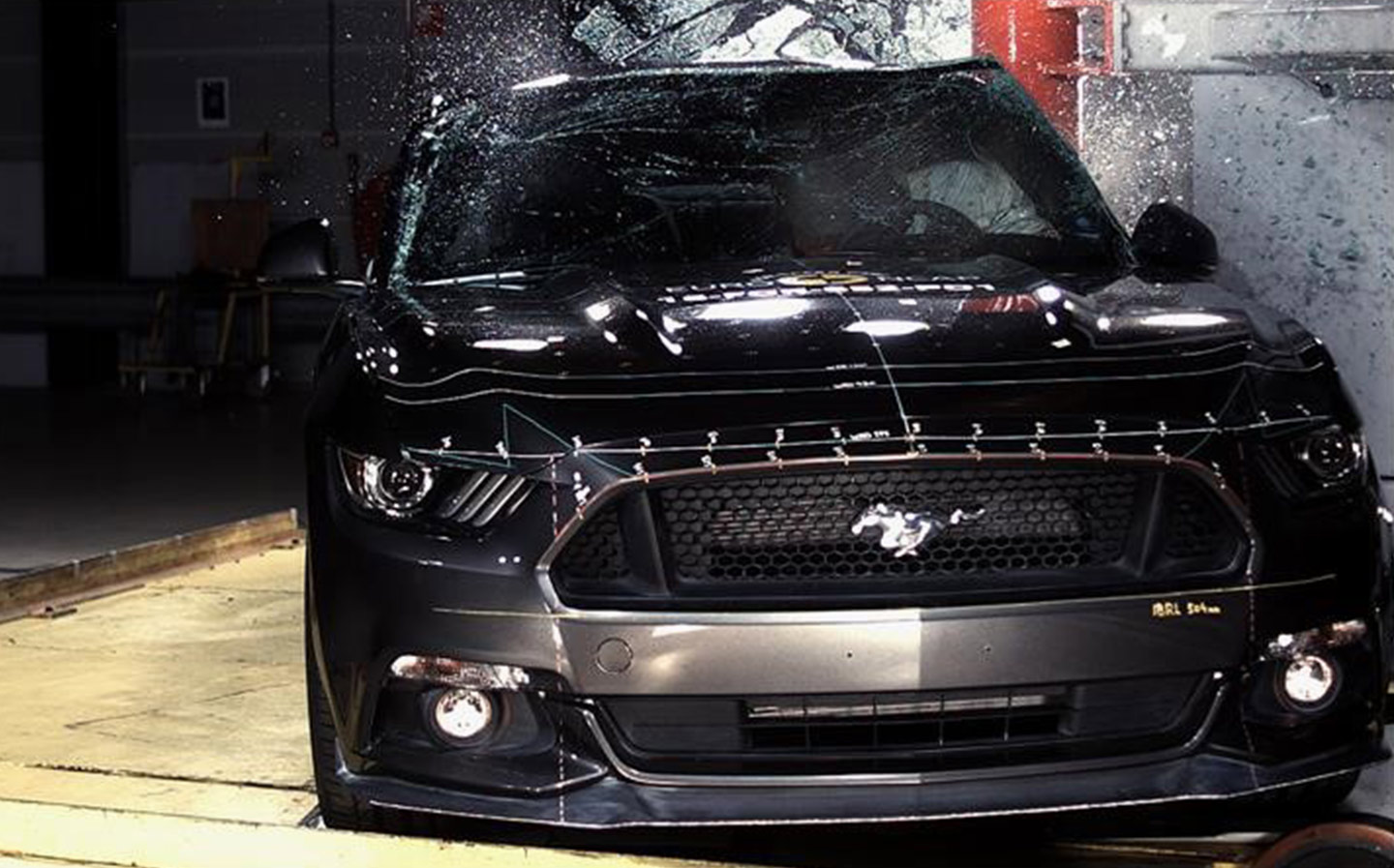New Ford Mustang receives just two stars in Euro NCAP crash test
A sting in the tail for 'Stang drivers
BRITISH drivers had to wait 50 years to get their hands on the Ford Mustang, and the arrival of the first right-hand-drive version on British driveways at the end of 2015 caused great excitement in petrolhead circles. But barely a year later, the wild child of the American muscle car scene has been slammed for offering poor protection to passengers in the event of an accident.
Euro NCAP, the European body that assesses new cars’ safety, awarded the latest Mustang just two stars out of five. Rival models such as the Audi A5 coupé scored the maximum five-star safety rating.
And the safety organisation heavily criticised Ford for failing to fit European Mustangs with lifesaving safety equipment that is standard on versions sold in America.
Browse NEW or USED cars for sale on driving.co.uk
Michiel van Ratingen, Euro NCAP’s secretary-general, said: “Ford did not expect Euro NCAP to test the Mustang and chose not to fit safety technology in Europe which is available to its American consumers. Such an attitude to safety should trouble Ford’s customers, whether they are buying a high-powered muscle car or a regular family car.”
In the frontal offset crash test, Euro NCAP discovered that the airbags for the driver and front seat passenger failed to inflate sufficiently to provide proper protection.

In the full-width frontal impact test, the rear passenger safety rating was deemed to be “poor”, the worst possible rating. This was down to the lack of pre-tensioners and load-limiters, which meant the passenger slid beneath the seatbelt.
Children were judged to be at serious risk in a side impact, with another “poor” rating for a 10-year old child using a booster cushion. The curtain airbag failed to prevent the head from striking the hard structure of the cabin.
Also of concern, the Mustang lacks any alarm system to tell the driver when the rear seatbelts are not fastened.
In addition, the sports car’s lack of active safety technology, which can help prevent an accident, was highlighted by a low score of 16% in the “safety assist” category. It has no automatic emergency braking function, speed-limiting feature or lane-keeping system.
Ford admitted that such safety systems would not be fitted to any Mustang ordered before September: “Customers in Europe ordering a Mustang after September 2017 will receive an updated version equipped with Pre-Collision Assist (with Pedestrian Detection, Forward Collision Warning and Autonomous Emergency Braking) and Lane Keeping Aid.”

Matthew Avery of Thatcham Research, which conducts safety tests with Euro NCAP, called the result a backward step.
“We have not given a two-star Euro NCAP rating to any of the top 10 car brands since 2008,” he said. “This really bucks the trend. We have concerns about the Ford Mustang’s crash protection of adults and children, which also makes it unsuitable for having rear passengers.
“On top of this, it does not have basic lifesaving technology like Autonomous Emergency Braking, which is available even on the Ford Fiesta and the recently launched Ford Edge,” Avery added.
Responding to the Euro NCAP crash test result, Ford said that the Mustang “is a safe car meeting, or exceeding, all applicable safety standards globally”.
Since it went on sale in Britain in late 2015, more than 4,000 Mustangs have been sold.





